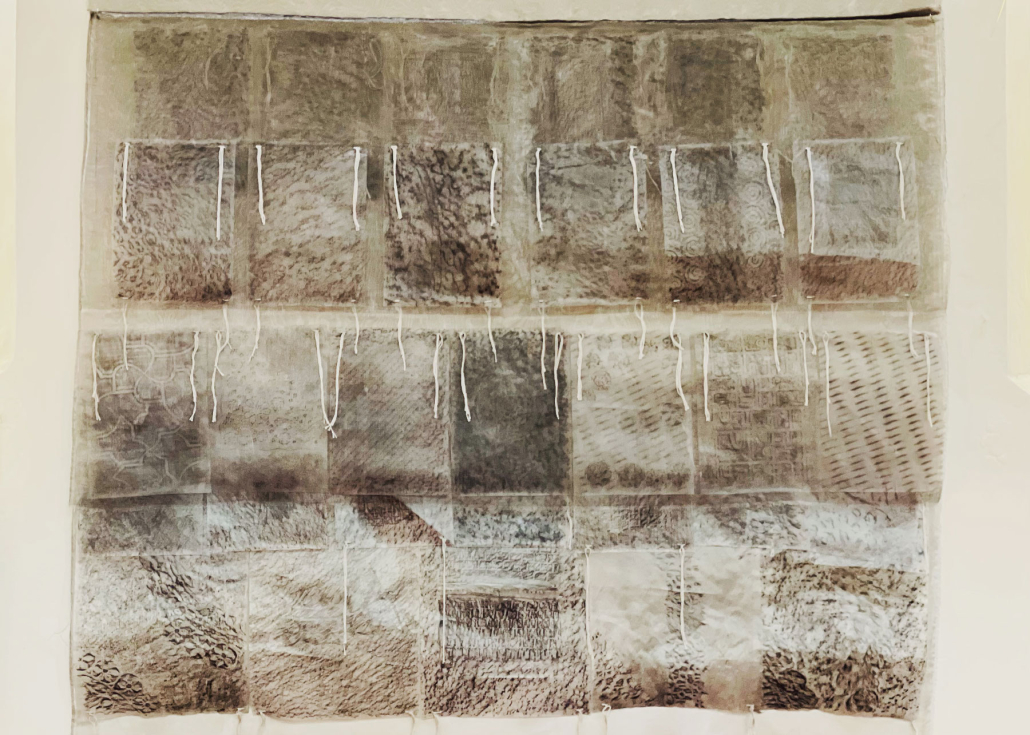Image: Banner artwork by the late Marg Vazey, with thanks to Megan Vazey and family.
Silent meditation
Led by Karen Banfield.
The roots of the World Community for Christian Meditation (WCCM) lie in the desert tradition of early Christianity. WCCM was inspired by the work of a Benedictine monk, John Main (1926-1982), who recognised how the “pure prayer” or “prayer of the heart” derived from the gospel teaching of Jesus and the advice of early Christian monks could bring people in all walks of life to a deeper spirituality.
John Main summarised this contemplative practice of meditation in this way:
“Sit down. Sit still with your back straight. Close your eyes lightly. Then interiorly, silently begin to recite a single word – a prayer word or mantra. We recommend the ancient Christian prayer-word “Maranatha” (a Hebrew word meaning ‘Come Lord’). Say it as four equal syllables. Breathe normally and give your full attention to the word as you say it, silently, gently, faithfully and – above all – simply.
“The essence of meditation is simplicity. Stay with the same word during the whole meditation and in each meditation day to day. Don’t visualise but listen to the word, as you say it. Let go of all thoughts (even good thoughts), images and other words. Don’t fight your distractions: let them go by saying your word faithfully, gently and attentively and returning to it as soon as you realise you have stopped saying or it or when your attention wanders.
“Meditate twice a day, morning and evening, for between 20 and 30 minutes. It may take a time to develop this discipline and the support of a tradition and community is always helpful.”
Video on how to meditate.
Concluding poem:
I lounge on the grass, that’s all. So
simple. Then I lie back until I am
inside the cloud that is just above me
but very high, and shaped like a fish.
Or, perhaps not. Then I enter the place
of not-thinking, not-remembering, not-
wanting. When the blue jay cries out his
riddle, in his carping voice, I return.
But I go back, the threshold is always
near. Over and back, over and back. Then
I rise. Maybe I rub my face as though I
have been asleep. But I have not been
asleep. I have been, as I say, inside
the cloud, or, perhaps, the lily floating
on the water. Then I go back to town,
to my own house, my own life, which has
now become brighter and simpler, some-
where I have never been before.
Mary Oliver, ‘Six Recognitions of the Lord’
from her collection Thirst (Beacon Press, 2006).




